Costs to Start an LLC In Colorado: Various Fees and Prices Revealed
Form a Colorado LLC With Pro Help for The Best Price
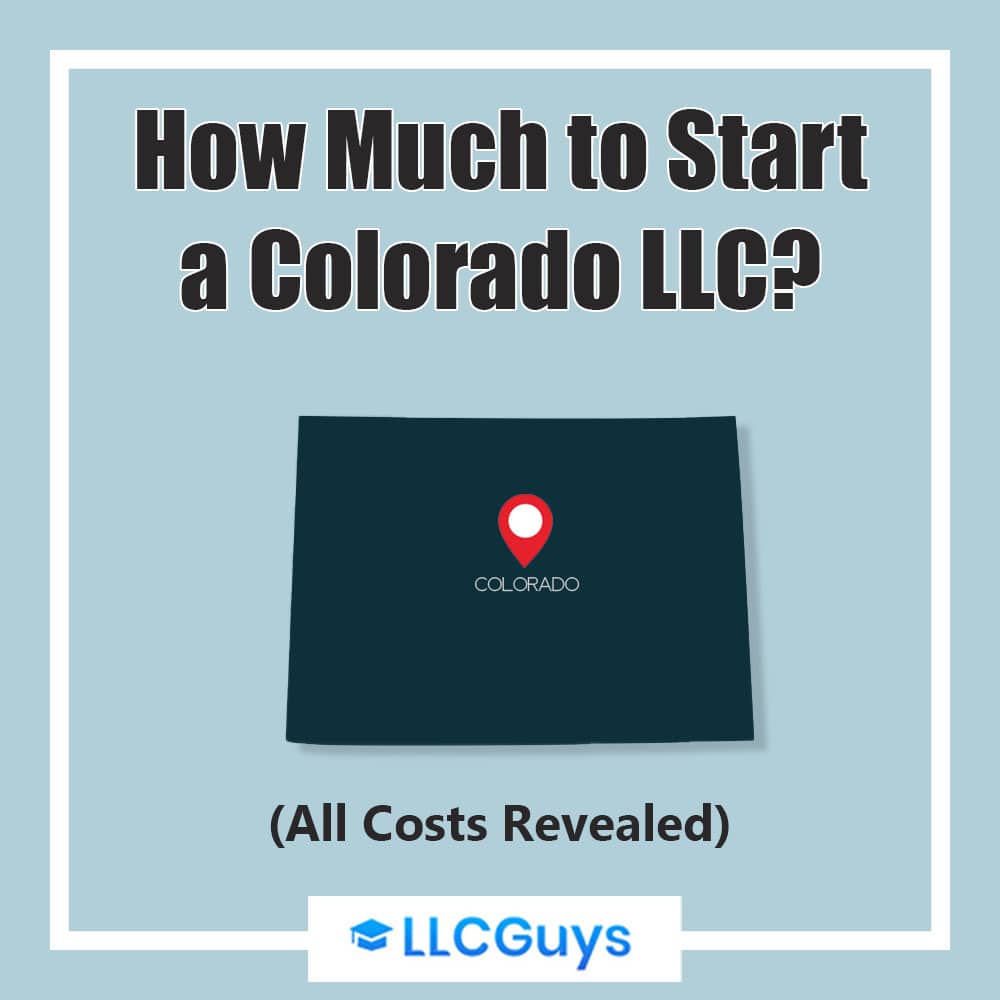
The cost of forming a Limited Liability Corporation (LLC) in Colorado is $50. When the LLC’s Articles of Organization are filed with the Colorado Secretary of State, this fee is paid. But there are other associated fees. To know more, continue with this guide. Or just use our best-rated LLC services offered below.
If you want to skip the hassle of starting a Colorado LLC yourself, consider using professional help for the best price in the market:
- Form a Colorado LLC With Pro Help for The Best Price
- In Colorado: How Much Does it Cost to Form an LLC in Colorado?
- Total Colorado LLC Costs Breakdown
- In Colorado: How Much Does It Cost to Form a Foreign LLC?
- How to Form a Colorado LLC on Your Own? (Prices Included)
- Step 1: Create and Reserve a Name for Your Colorado LLC (Price: $20-$40)
- Step 2: Select an Agent to Act As Your Registered Agent (Price: Free or ~$100-$200/yr)
- Step 3: File the Articles of Organization
- Step 4: Create an Operating Agreement for Your Colorado LLC (Cost: FREE)
- Step 5: Obtain an Employer Identification Number (EIN) (Cost: FREE)
- Business License in Colorado
- Incorporation VS LLC in Colorado
- Colorado LLCs vs. Corporations
- COLORADO REQUIREMENTS FOR ANNUAL REPORTS
- Corporate Taxes in Colorado
- FAQ About Colorado LLC & Its Costs
- Get Professional Help in Starting an LLC in Colorado
- Conclusion
In Colorado: How Much Does it Cost to Form an LLC in Colorado?
The $50 price to submit your LLC’s Articles of Organization online with the Colorado Secretary of State is the most expensive part of incorporating an LLC.
The Secretary of State of Colorado requires LLCs to submit an annual report.
The Colorado periodic report is required every five months, beginning two months before and ending two months after the LLC’s formation date. For failing to file on time, Colorado imposes a $50 penalty.
Although you may be your own registered agent in Colorado, employing a registered agent service keeps your firm in compliance and helps you avoid late fines by reminding you of critical filing dates. If hiring a professional service – it will mostly cost $100-$200/yr.
Total Colorado LLC Costs Breakdown
When starting an LLC in Colorado you will basically have a few choices which are as follows:
- Forming it yourself (total cost: ~$130): Filing Articles of Organization with the state ($50) + Name reservation (avg. $30) + Choosing a Registered Agent (avg. $50).
- Forming a Colorado LLC With ZenBusiness (~$49 for a basic option).
- Forming a Colorado LLC With Northwest Registered Agent ($35/mo for the best single package they have).
… or you can read our best LLC formation services guide to find out about other prices with other LLC service providers.
In Colorado: How Much Does It Cost to Form a Foreign LLC?
If you currently have an LLC registered in another state and want to extend your business into Colorado, you’ll need to register it as a foreign LLC.
If you want to know the difference between Foreign and Domestic LLC – click here.
The cost of forming a foreign LLC in Colorado is $100. A Statement of Foreign Entity Authority is required to register a foreign LLC in Colorado.
Your business may require federal, state, and municipal permits/licenses to lawfully operate in Colorado, depending on your industry and geographic area. This is true whether you create a limited liability company (LLC) or any other sort of business entity.
There are a few extra costs involved with forming an LLC:
Reservation of the LLC name ($25):
By completing the LLC Name Reservation Form and paying the $25 filing fee, you can reserve your name for up to 120 days prior to the creation of your LLC.
Reservation of a foreign LLC name ($40):
By completing the LLC Foreign Name Reservation Form and paying the $40 filing fee, you can reserve your name for up to 12 months prior to the creation of your LLC.
DBA (Doing Business As) Name ($20):
To create a name different than your official LLC business name, file a statement of trade name and pay the $20 filing fee.
How to Form a Colorado LLC on Your Own? (Prices Included)
Here’s our full Colorado LLC creation guide
It’s simple to form an LLC on your own; just follow the five procedures below.
In Colorado, there are five basic steps to forming an LLC.
Step 1: Create and Reserve a Name for Your Colorado LLC (Price: $20-$40)
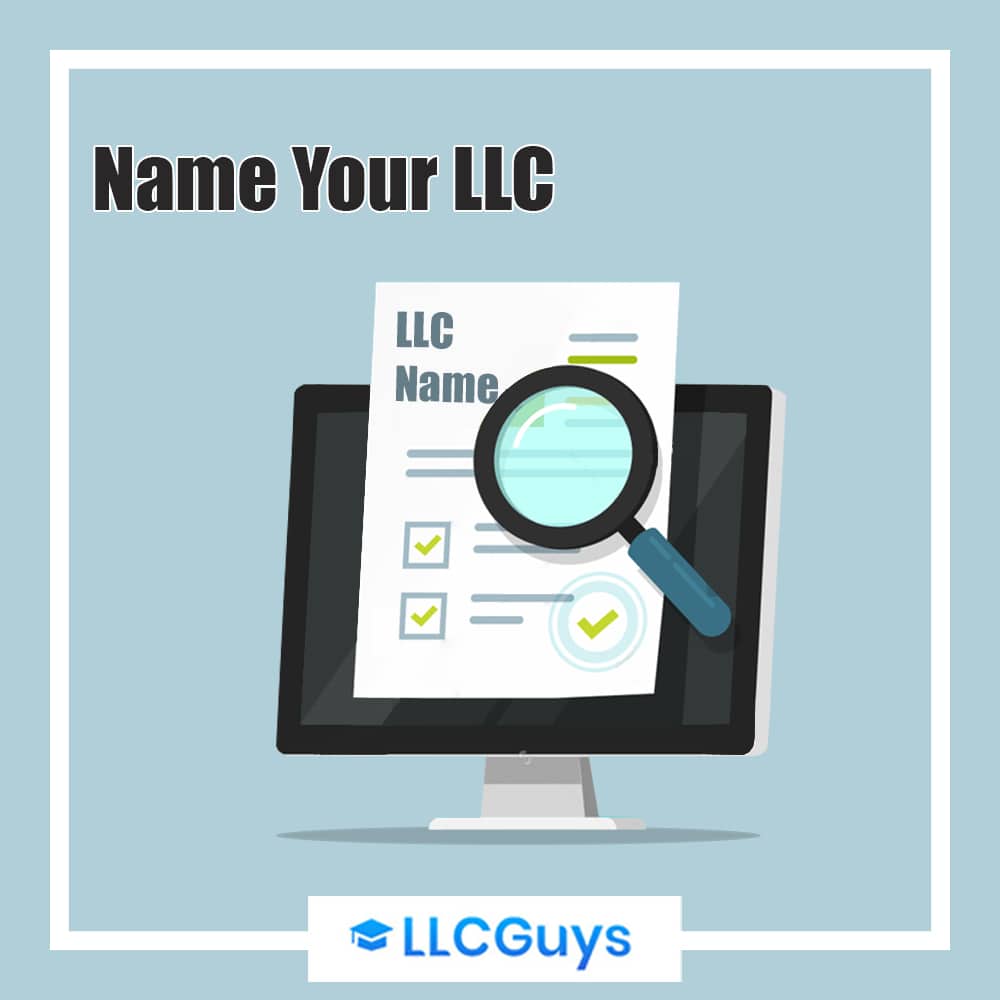
When naming your Colorado LLC, make sure it meets the following criteria:
- In the state of Colorado, it’s legal to use.
- Meets the standards for naming in Colorado.
- Is it possible to purchase a web domain?
We suggest looking online to see whether your company name is accessible as a web domain. Even if you have no plans to construct a company website right now, you may wish to purchase the URL to prevent others from doing so.
The cost for LLC name reservation in Colorado state is $20-$40 depending your options.
More than just picking a catchy name goes into naming your company. The following three stages should be followed by business owners:
- Select an Organizational Structure
- Take into account your personal brand.
- Complete Name Lookups
When you put it all together, you have a fantastic name and the foundation for a successful company.
Step 2: Select an Agent to Act As Your Registered Agent (Price: Free or ~$100-$200/yr)

In Colorado, all limited liability companies are required to have a registered agent. The principal point of contact for your LLC with the state is a registered agent. They are also in charge of accepting service of process in the event that your company is sued.
The price can be free if you act as a Registered Agent yourself or $100-$200/yr if you choose a professional service.
Your registered agent in Colorado must:
Step 3: File the Articles of Organization
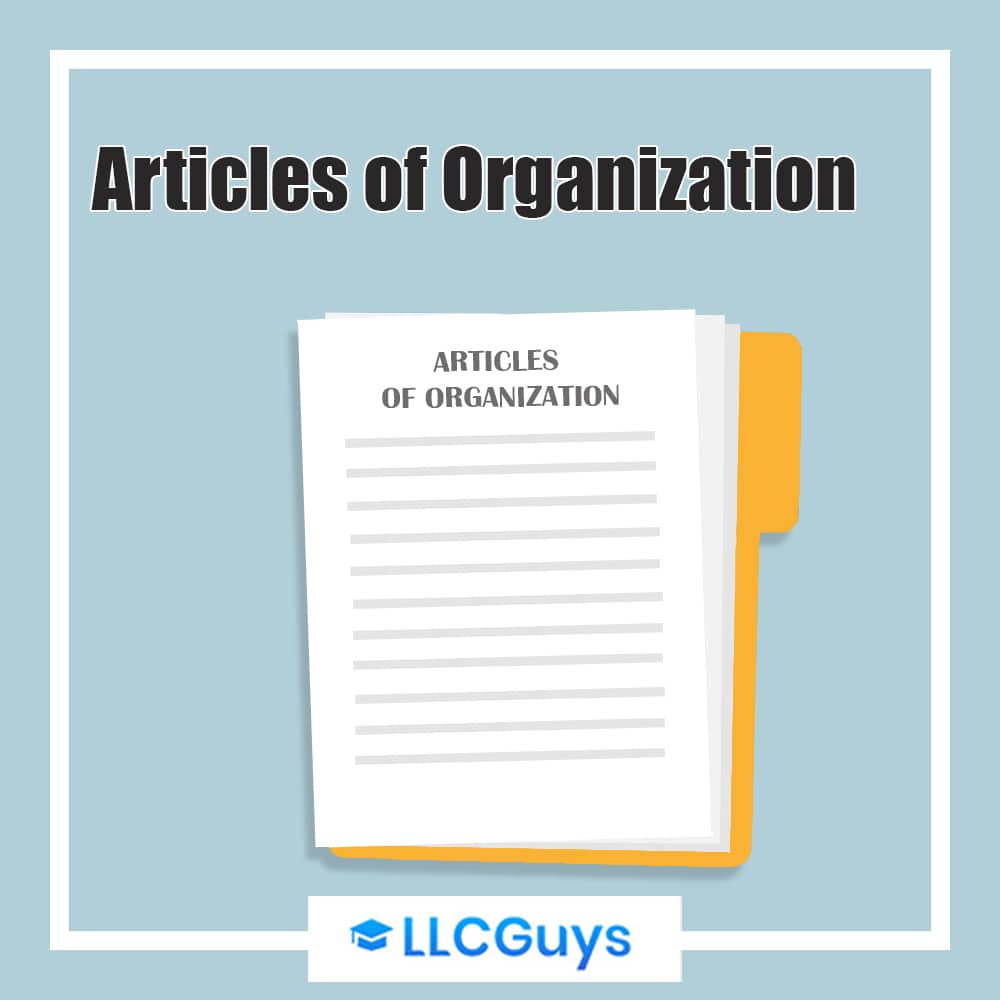
The Colorado Articles of Organization is a document that is filed with the Colorado Secretary of State to form an LLC. The fee for filing the Articles of Organization is $50.
Step 4: Create an Operating Agreement for Your Colorado LLC (Cost: FREE)
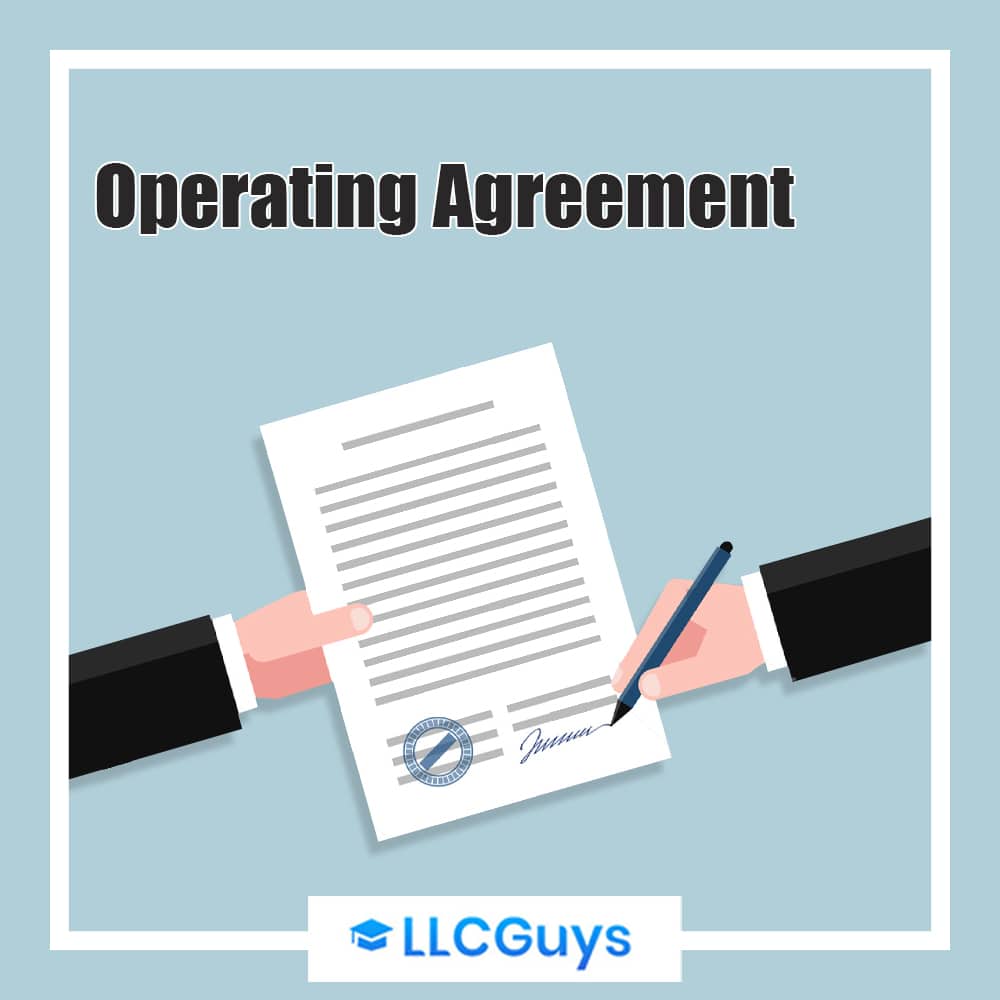
Although Colorado LLCs are not obliged to have an operating agreement, it is a good idea to have one.
What is the definition of an operating agreement? An operating agreement is a legal document that spells out an LLC’s ownership and running processes.
What are the benefits of operating agreements? A detailed operating agreement guarantees that all firm owners are on the same page and decreases the likelihood of future disagreement.
Step 5: Obtain an Employer Identification Number (EIN) (Cost: FREE)
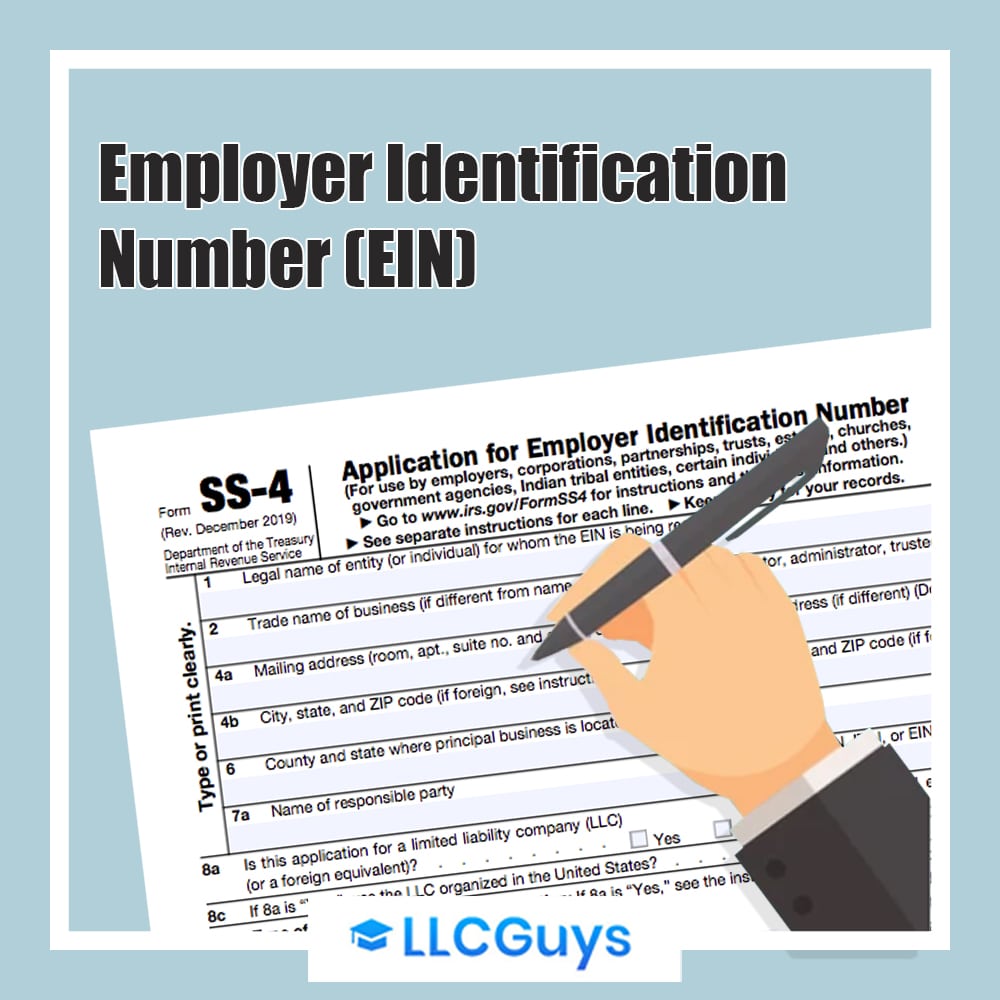
What is an EIN number? The Internal Revenue Service (IRS) issues an EIN, or Employer Identification Number, to identify a firm for tax reporting reasons. An EIN is a company’s version of a Social Security number (SSN).
What is the purpose of having an EIN? For the following, an EIN number is required:
- Getting a company bank account is a big step.
- Recruiting workers
Business License in Colorado
A Colorado business license can be obtained online or by mail.
We give the resources and information you’ll need to get federal, state, and municipal licenses and permissions for your small company, including the seller’s permit.
How to Obtain a Colorado Business License?
By submitting an application to the appropriate licensing or regulating body for your business, you can obtain a business license online or by mail.
The following are the three primary licensing authorities:
- State
- Local
- Federal
Colorado’s Business Licensing Program
The sales tax license, often known as a seller’s permit, is the most important state-level permission or license in Colorado.
If you do any of the following, you must acquire a sales tax license:
- Are you a Colorado entrepreneur?
- Intend to sell or lease tangible personal property that would be subject to sales tax in the normal course of business.
If your company is not situated in Colorado but conducts more than $100,000 in yearly sales in the state, you must apply for an out-of-state merchant sales tax license.
Some occupations require additional licenses in addition to the sales tax license. For further information, go visit the Colorado Department of Regulatory Agencies’ website.
Local Business Licensing in Colorado
Depending on your company activity or location in Colorado, you may require additional licenses or permissions from your local government.
A hotel in the city of Denver, for example, must get a local-level lodging facility license in order to operate.
For further information, contact your local Colorado county or city office.
The Procedure for Obtaining a Colorado Business License
License for Sales Tax
You can apply for a Colorado sales tax license online, by mail, or in person if your firm has one commercial location in the state. You must apply by mail or in person if you have more than one site.
Other Business Licenses in Colorado
The procedures for getting licenses for certain occupations differ. For further information, see the Department of Regulatory Agencies’ website or contact your local government office.
Renewal
Sales tax licenses in Colorado are valid for two years and expire at the end of every odd year. Each physical site has its own license, which must be renewed every year for a charge of $16.
The state sales tax license can be renewed online or by mailing a printed copy of the form to the Department of Revenue.
Check with the proper government office to discover whether any additional licenses your company holds need to be renewed.
Business Licenses and Permits from the Federal Government
You can obtain a business license by submitting an application to the appropriate licensing and regulatory body for your industry. The type of license you’ll need depends on your business’s activity and location (zoning requirements).
If your company engages in activities that are controlled by the federal government, you must get the necessary business license or permission.
Incorporation VS LLC in Colorado
You think you have a great company concept in Colorado, but you’re not sure whether to create an LLC or a corporation. Allow Active Filings to serve as your guide. We’ll go through the benefits and drawbacks of founding an LLC or incorporating in Colorado. You’ll learn how to create an LLC or a corporation in Colorado, as well as the pros and cons of each company type, in this Colorado-specific corporation and LLC formation guide.
When it comes to starting a business, many people wonder whether they should form an LLC or incorporate. The solution, like everything else in life, is contingent. The three things we believe will help you make an educated selection are listed below.
Making you Free From Business Maintenance
In comparison to corporations, LLCs are just easier to manage. Both provide good liability protection in the event of a lawsuit, but a corporation has many more moving components. Shareholder meetings must be held, directors must be elected, rules must be created, and minutes must be kept for all meetings. To say the least, it’s arduous, but it’s well worth it if you’re serious about expanding your company. The LLC is ideal for the rest of us. You are the one who shapes it. You manage it, or you appoint someone to do it on your behalf. Fill out and submit your yearly report. Boom. Easy.
Meet your Preferred Structure of Tax
An LLC is a pass-through tax entity by default, which means that the income is not taxed at the corporate level. This return’s revenue or loss is ‘passed through’ the company entity to the individual members, who then declare it on their personal tax returns. There will be less paperwork. Simpler to understand. A corporation is a distinct taxable entity that pays income tax before distributing dividends to shareholders. Dividend income is taxed as regular income to shareholders if and when company earnings are delivered to shareholders in the form of dividends. Complicated. Paperwork. This one goes to Colorado LLC.
Venture Capitalists
When it comes to investing in a firm, the majority of investors choose to put their money into companies. The most important reason why investors choose companies is because they have more advantageous tax regulations. A corporation’s stockholders, unlike LLCs, are not taxed on earnings unless they are dispersed, which implies that dividends paid by the business can be structured to take advantage of the best tax scenario for the shareholders. Forming a corporation is your best choice if you want to develop your small firm into a larger organization and attract investors.
One word of advice about corporations and LLCs. While the local plumber is a respectable business, their LLC lacks the clout of a Nike, Inc. or a Walmart, Inc. Many people imagine large multi-national corporations with vast resources at their disposal when they hear the term corporation. While the LLC is ideal for small to medium-sized businesses, the terms Limited Liability Company (LLC) do not have the same clout as the word corporation. While LLCs were originally created in the late 1970s, the corporation is the oldest recognized corporate organization in the United States, and hence they have a certain cachet.
Colorado LLCs vs. Corporations
Let’s take a closer look at the advantages and drawbacks that Colorado has to offer to LLCs and companies.
Annual Maintenance at a Low Cost
All companies in Colorado are required to file a Periodic Report. Some states demand exorbitant fees for annual reports, whereas Colorado does not. You can also file it online, which saves you time and effort. The state charges $10, and it must be paid within three months of the first day of the month in which your company’s Articles were filed. If you started your business in July, for example, your reporting period is from July 1st to September 31st.
Taxation of Companies
Corporate income in Colorado is taxed at a flat rate of 4.63 percent. According to the Tax Foundation, Colorado is in the top 20 states for the greatest corporate tax structure and business-friendly tax climate, thanks in part to the state’s flat tax. One of the main reasons in favor of a flat tax system is that it allows companies to save more money and encourages expansion. A company with $1,000,000 in sales is not taxed at a greater rate than one with $10,000 in sales, which is taxed at a lower rate. Both have a 4.63 percent pay rate. Colorado thinks that its flat tax structure boosts total income, promotes economic stability, and even invites corporate investment.
Only Online Assistance Offers
Colorado only permits you to create your business online, which is convenient for most individuals and reduces paperwork. If they aren’t computer aware, it may make things more difficult for them. The good news is that if you engage Active Filings, we’ll happily geek out and submit all of your documentation to Colorado’s business formation site on your behalf. You’re practically compelled to get a computer and learn how to file online, or hire someone to do it for you. While online formation is the way of the future, forming a business in Colorado might be challenging if you aren’t comfortable with technology.
Revenue
Colorado has a flat personal income tax of 4.63 percent. Because the state’s income tax and corporate tax are the same, becoming an LLC is a good idea because you’ll only pay 4.63 percent on your profits, whereas a corporation will pay a peak rate of 9.26 percent. Ouch. This makes you reconsider creating a corporation in Colorado.
Reduced Liability Protection
After a 2012 case (Martin v. Freeman) in which the state’s Court of Appeals “pierced the corporate veil” by ruling that business owners or companies can be held personally liable for business obligations, an LLC’s personal liability shield is considerably decreased under current Colorado law. The court found that an LLC’s creditor does not need to establish fraud, improper purpose, or bad faith in order to obtain the assets of the LLC’s sole member.
COLORADO REQUIREMENTS FOR ANNUAL REPORTS
All LLCs and corporations conducting business inside the state of Colorado are required to file an annual report known as the Colorado Periodic Report. The report acts as an annual renewal of your company’s registration with the Colorado Secretary of State, reserving your right to maintain your business name and informing the state of any changes to your firm in the previous year. When you use Active Filings, you get assured on-time filing, which means you won’t have to worry about late fines or your company getting into issue with the state.
What is the Colorado Periodic Report, and why is it important?
Colorado’s report’s aim is to maintain your company records up to date with the state, allowing creditors and other interested parties to seek up your business address in case they need to contact you. This information is also used by the IRS to track the payment of your company’s taxes.
What is the procedure for submitting my Colorado Periodic Report?
Only available online. In Colorado, there are no paper filings. Your LLC or company will get an email from the Secretary of State’s office with information on how to file your report. When you employ Active Filings, we’ll get this email and notify you far ahead of the deadline, so you won’t have to worry about missing the deadline.
In What Address should my Colorado Periodic Report Send To?
The answer is straightforward. You’re not going to be able to accomplish it. The lengthier answer is that, while many states allow you to submit your state annual report on paper, Colorado is ahead of the game. Your Colorado Periodic Report must be submitted on the internet to the Secretary of State. There have been no paper filings in Colorado.
What is the price of this report?
One of the most affordable state reports is only $10.
When do I have to submit my report?
Starting on the first day of the month in which you filed your company’s Articles, you have three months to file your Colorado Periodic Report. If you started your business in July, for example, your reporting period is from July 1st to September 31st. You have a two-month grace period in Colorado, after which you will be assessed a $50 late fee. Failure to file the report may result in your company being shut down.
Corporate Taxes in Colorado
Taxes are something that almost no one appreciates. They are, nonetheless, an essential component of conducting business in America. While we are not tax specialists, we will do our best to explain the types of taxes your company may be required to pay.
How will my company be required to pay taxes?
Corporations are subject to “double taxation,” in which they pay taxes on their net profits and then pay taxes again on the dividends they get from those earnings. Dividends are taxed at the individual tax rate of the shareholder. Because an LLC does not have this issue, anybody considering forming a company should be aware of the state’s corporate and personal income taxes.
How will my limited liability company (LLC) be taxed?
The IRS treats single-member LLCs like sole proprietorships since you are the only one running the firm. This implies that any earnings or losses incurred by your LLC will be passed on to you as the only owner. It’s as simple as filing a Schedule C with your personal tax return (IRS Form 1040).
What if I have more than one member in my LLC?
The IRS will treat your multi-member LLC as a pass-through organization for tax purposes, just like a single-member LLC. It will also classify you as a partnership, requiring each member to file a Return of Partnership Income form (IRS Form 1065). This document allows the IRS to verify that each owner is accurately reporting their income. A Schedule K-1 (Partner’s Share of Income, Deductions, Credits, and Other Items) will be attached to each LLC owner’s Form 1040. This form informs the IRS about each LLC member’s share of income and losses.
Here’s a tip: if your LLC will have more than one member, drafting a basic operating agreement is a smart idea. Most states don’t need an LLC, but with so many cooks in the kitchen, you’ll need precise paperwork on ownership percentages, voting rights, profit and loss sharing, and criteria for buying out a member. Although the agreement isn’t required to be filed, it should be signed by each member and preserved alongside the LLC’s other critical documents.
What tax forms must I submit?
- Form 112 is for corporations.
- Form 104 is for LLCs.
- Nonprofits: Form DR 0715.
What is the corporation tax rate in Colorado?
Colorado has a 4.6 percent flat corporate income tax rate.
What is the personal income tax rate in Colorado?
Colorado’s income tax is a flat rate of 4.63 percent, which means that no matter how much money you make, you’ll pay the same amount. Depending on your perspective, this is either excellent or awful.
When do I have to pay my taxes?
Colorado businesses must file their tax returns by April 15th.
What if I need more time?
Colorado allows for a 6-month delay, bringing the filing due up to October 15th (for calendar year taxpayers). Colorado’s tax extension is automatic, which means you don’t have to apply unless you owe money to the state.
FAQ About Colorado LLC & Its Costs
Is it necessary to pay for a Colorado LLC on an annual basis?
Yes, Colorado LLCs are required to pay a $10 annual report fee.
Is it really required to form an LLC?
An LLC offers limited liability protection. This implies that in the case of a business loss, such as a lawsuit or unpaid debt, an LLC protects your personal assets.
Any small firm with even the tiniest degree of risk or liability should incorporate an LLC, according to us.
What is the most cost-effective approach to form an LLC?
By completing the formation procedure yourself, creating your own operating agreement, acting as your own registered agent, and obtaining your own EIN, you may save money on an LLC.
Is it possible for me to pay myself a salary from my LLC?
You can pay yourself a salary from your LLC, but if your LLC is taxed in the IRS’s default manner, it would be referred to as a draw or distribution.
Is a S corporation preferable than a limited liability company (LLC)?
An S corporation (S corp) is a tax status administered by the Internal Revenue Service, not a form of commercial entity. An LLC can be taxed either as a regular corporation or as a S corporation. Being taxed as a S corporation might make a lot of sense for some firms.
How long will it take for my Colorado LLC to be formed?
If you choose the Basic or Standard package, we’ll submit your papers with the Colorado Secretary of State in four to five business days and send you your finalized LLC documentation in one to two weeks. We will file your papers with the Colorado Secretary of State within one business day if you select the Express Premiere package. One business day later, you will get your finalized LLC documentation through email. Your LLC records kit will be delivered straight from the manufacturer.
How much time do I have to complete my LLC formation?
If you choose the Basic or Standard package, we’ll submit your papers with the Colorado Secretary of State in four to five business days and send you your finalized LLC documentation in one to two weeks. We will file your papers with the Colorado Secretary of State within one business day if you select the Express Premiere package. One business day later, you will get your finalized LLC documentation through email. Your LLC records kit will be delivered straight from the manufacturer.
Which is preferable: a single proprietorship or an LLC?
If you choose the Basic or Standard package, we’ll submit your papers with the Colorado Secretary of State in four to five business days and send you your finalized LLC documentation in one to two weeks. We will file your papers with the Colorado Secretary of State within one business day if you select the Express Premiere package. One business day later, you will get your finalized LLC documentation through email. Your LLC records kit will be delivered straight from the manufacturer.
Because sole proprietorships do not provide any liability protection, they are only suitable for enterprises with a very low risk of liability.
Get Professional Help in Starting an LLC in Colorado
It can be difficult and time-consuming to form an LLC. It might be beneficial to have some assistance, and we’ve compiled a list of two of the top LLC creation services available.
#1 – ZenBusiness can help you form a limited liability company in Colorado
ZenBusiness provides LLC creation services at a low cost and with a number of useful features. Most LLCs will benefit from two of these aspects in particular. All of ZenBusiness’s products include a year of complimentary registered agent service. With their Pro and Premium Packages, they offer ensure worry-free compliance. ZenBusiness will file your yearly report and notify you if there is anything further you need to do to be in compliance with the state under this assurance. For $119 per year, those with the basic package can purchase worry-free compliance.
ZenBusiness will help you form an LLC for for $49. They have a customer satisfaction rating of 98 percent and over 4500 verified reviews.
Here’s a full review of Zenbusiness in case you want to know more.
#2 – Create a LLC in Colorado using Northwest Registered Agent
With decades of expertise, Northwest Registered Agent is an exceptional LLC creation service. They deliver excellent, well-informed customer service. Their biggest benefit, though, is the seclusion they provide. They don’t outsource any of their services to third parties, don’t sell your information, and even build their own code.
Nortwest can help you form an LLC right now. They have a customer satisfaction rating of 98 percent and over 4150 verified reviews. They’ll come with a complimentary year of registered agent service!
Click here for a full review of Northwest Registered Agent.
Conclusion
In the event of a lawsuit or business collapse, forming a Colorado LLC is a fantastic method to safeguard your personal assets. Fortunately, Colorado makes forming an LLC simple and offers a favorable business climate. If you want to create a Colorado LLC, simply follow the instructions above and you’ll be up and running in no time.
In addition, starting a CO LLC isn’t as expensive as it seems.
The total cost shouldn’t exceed:
- $49 if you’re forming a basic LLC with all the basic options with ZenBusiness.
- $39/mo if you’re forming a top-notch LLC with Northwest.
- $100-$300 if you’re forming an LLC yourself.
Alternatively, you may do everything yourself, but remember that it will take time and money regardless.





